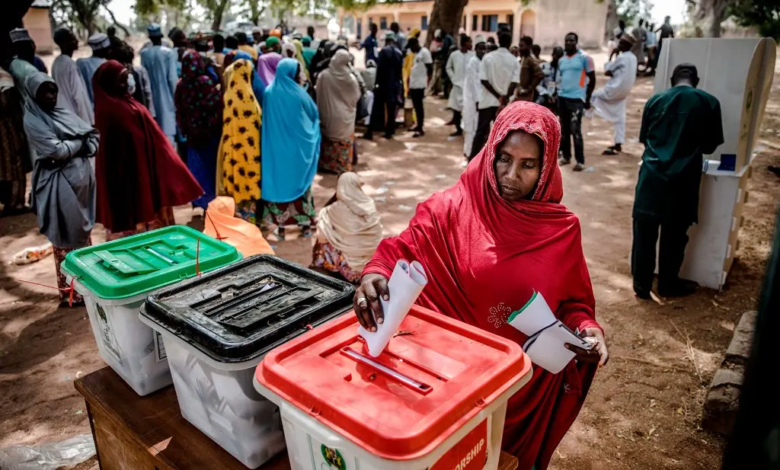EU MP Wants Actions To Stop IDPs From Going Unheard In Nigeria’s Upcoming Elections
As 2023 approaches, there is a call for an inclusive process, which enables IDPs to exercise their civic rights—to vote free of fear of attack or reprisals.

Nigeria must ensure the voting rights of Internally Displaced Persons (IDPs) are protected in line with the Kampala Convention in the upcoming 2023 general elections, an expert has advised.
In an interview with HumAngle, Maria Arena, a member of the European Parliament and the Chief Observer of the EU Electoral Observation Mission (EOM) in the 2019 general elections, said Nigeria’s Independent National Electoral Commission (INEC) should strive for more inclusiveness and safety of the displaced people to vote.
Arena was recently on an EOM follow-up mission to Nigeria to assess INEC’s preparations for the general elections slated for Feb. 25 and March 11, 2023.
She said the conduct of the general elections would be challenging for Nigerians amid heightened security tensions, primarily caused by Boko Haram and its faction, Islamic State affiliate (ISWAP)’s insurgency in the Northeast and increasing armed violence in Northwest and some part of North-central.
More than 2 million people are IDPs in the country—the majority come from Borno, Yobe and Adamawa states ravaged by Boko Haram terrorists.
There are added concerns for IDPs in the Northeast to vote free of fear of attack or reprisals as governments push for resettling them back into communities previously ravaged by the insurgency.
For the IDPs, INEC says it will print new Permanent Voters Cards (PVCs) for them and recreate their polling units in their camps. They will be eligible to vote in some of the elections depending on their location and their proximity to their State and Federal Constituencies.
This is in accord with section 24(1) of the Electoral Act, which provides that “In the event of an emergency affecting an election, the Commission shall, as far as practicable, ensure that persons displaced as a result of the emergency are not disenfranchised.”
Festus Okoye, INEC’s spokesperson, said voting for IDPs would be conducted in officially designated camps, and those who lost their voter cards would be able to re-register or replace their cards in their new locations and vote only during the presidential election.
But displaced persons who obtain voter cards from their host states and those with voter cards from their home states will inadvertently lose the chance to elect their local state assembly representatives.
“What the law says is that people should vote in the constituency and polling unit where they are registered,” Okoye told HumAngle in a phone interview on Monday, March 7. “For those who have left their communities completely, it is next to impossible to recreate new polling units for them.”
This, Arena said, is restrictive for many IDPs. In the past, IDPs were encouraged to return to where they were forced to flee to vote. During the 2015 elections, IDPs from areas liberated by the army, such as Mubi North, Mubi South and Maiha local government areas in Adamawa state, were told to return to their places of origin to vote.
In 2019, IDPs were transported through a dangerous area to vote in Borno state, unescorted by security personnel.
The unstable condition put them at risk of renewed attacks and displaced again.
‘Displaced, not disenfranchised’
Arena said the election umpire must not disenfranchise the IDPs because of the security situation.
“If a large part of the country is not participating for security reasons, to the election of 2023, credibility of the result will be questioned,” she said. “It is aware of not accepting the results of the elections afterwards. So the country needs to be sure that the biggest part of the population accepts the result of these elections. ”
This, she said, was why the EOM recommended INEC and other government bodies to plan well for the elections coming up in a year.
“One year seems to be a long time, but it is not in countries such as this one. It is not it,” she said. “You have to use all this time, day by day, hours by hours, to be sure that in 2023 major parts of this country can go and vote.”
Support Our Journalism
There are millions of ordinary people affected by conflict in Africa whose stories are missing in the mainstream media. HumAngle is determined to tell those challenging and under-reported stories, hoping that the people impacted by these conflicts will find the safety and security they deserve.
To ensure that we continue to provide public service coverage, we have a small favour to ask you. We want you to be part of our journalistic endeavour by contributing a token to us.
Your donation will further promote a robust, free, and independent media.
Donate HereStay Closer To The Stories That Matter




